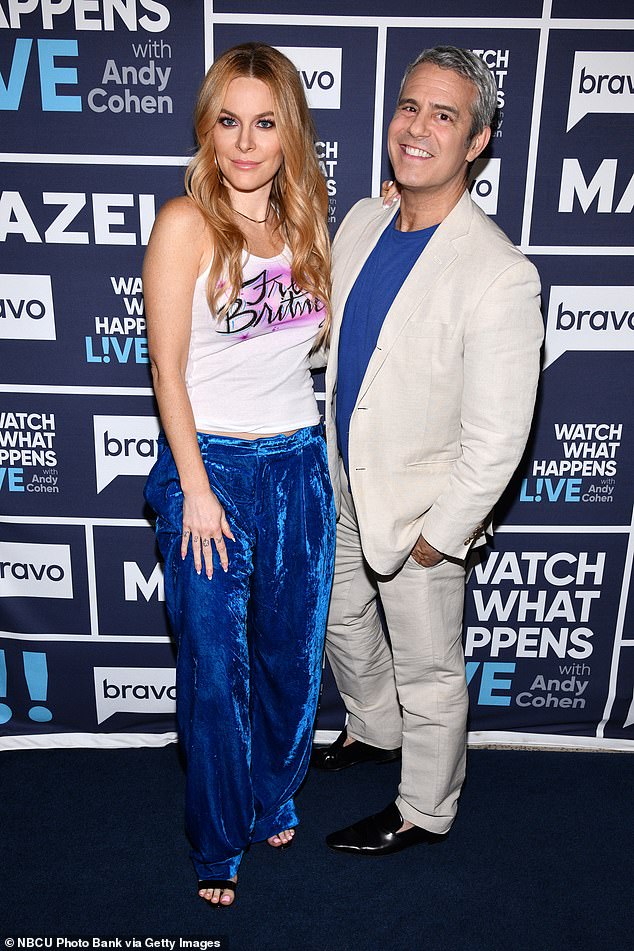Andy Cohen has filed a motion to have Leah McSweeney’s lawsuit against him and Bravo dismissed. McSweeney, a former Real Housewives of New York City star, is suing Cohen and Bravo for alleged discrimination and a hostile work environment. Cohen’s filing argues that the allegations should be dismissed due to first amendment rights to tailor messages on the show. He also denies McSweeney’s claims of discrimination based on Title VII and the New York City Human Rights Law, citing that they have surpassed the statute of limitations. McSweeney’s lawyer responded by stating that the motion lacks merit and would essentially mean creative industries would be exempt from anti-discrimination laws.
Leah McSweeney, who is now sober, has spoken about going up against Bravo, a powerful entity, and how the lawsuit has impacted her. Despite facing blowback, she is committed to speaking her truth and believes her intentions are good. McSweeney stated that she is doing well and has a solid support system in place. Cohen and his legal team have refuted the claims made by McSweeney and have threatened legal action if she does not retract the allegations. They claim that the accusations, including drug use, are false and seek their removal from public record. McSweeney has named Cohen, Bravo, and parent companies in her lawsuit seeking unspecified damages.
In her legal documents, McSweeney alleges that Bravo promotes a culture of drug and alcohol use and failed to accommodate her addiction-related disability while filming The Real Housewives of New York City. She mentions that producers provided her with alcoholic beverages and encouraged consumption despite her sobriety efforts. This led to a relapse into alcohol addiction shortly after joining the show. McSweeney also claims that Bravo executives violated her employment rights under the Disabilities Act by preventing her from seeking help for her alcohol issues. She additionally states that sexual harassment was rampant within the company, with a senior producer sending unsolicited explicit images to lower-level employees.
The lawsuit filed by McSweeney also implicates Cohen in providing cocaine to Housewives and engaging in drug use with employees, leading to favorable treatment and strategic editing to portray certain cast members positively. Cohen’s attorneys have refuted these claims and warned McSweeney to retract the allegations or face further legal action. Despite this, McSweeney remains steadfast in her beliefs and her commitment to telling her story. She expressed that her journey has been challenging but is focused on her recovery and using the tools she learned in sobriety to navigate her current situation. The legal battle between McSweeney and Cohen continues with both parties standing by their respective positions.
As the legal proceedings unfold, the case highlights the complexities of discrimination, addiction, and workplace culture in the entertainment industry. McSweeney’s lawsuit sheds light on the challenges faced by individuals dealing with addiction in environments that may not support their recovery efforts. The involvement of high-profile personalities like Cohen and the Bravo network adds a layer of scrutiny to the case. McSweeney’s courage in coming forward with her allegations underscores the importance of addressing systemic issues within the entertainment industry and advocating for workplace environments that prioritize the well-being of all employees. The outcome of this case will likely have far-reaching implications for how the industry addresses discrimination, addiction, and workplace culture moving forward.


